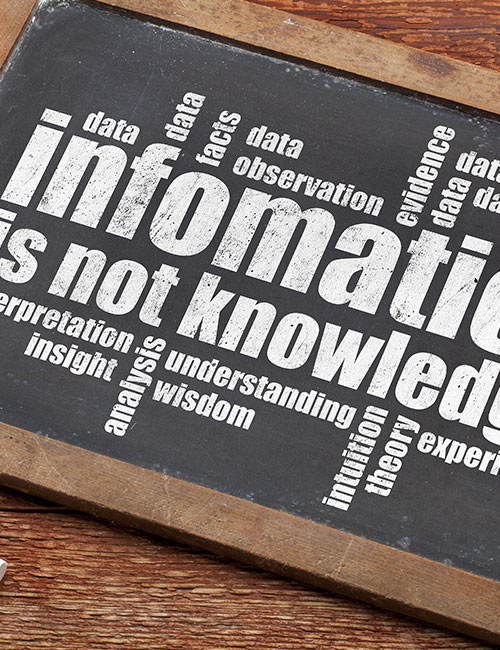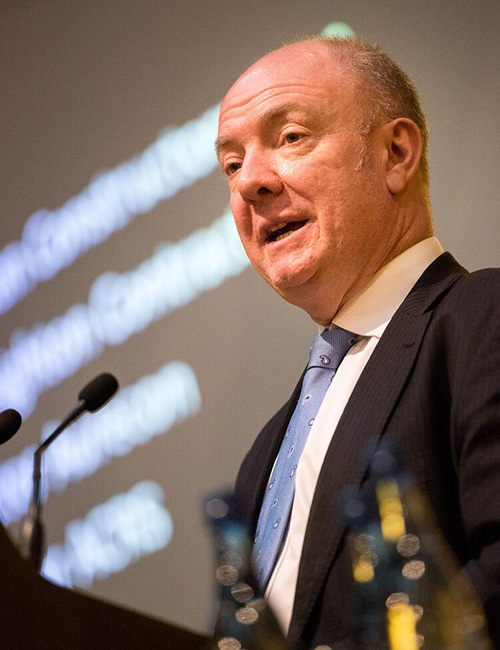How Customer Relationship Management can send you broke
Disappointing a customer is NEVER a good idea; but what does "disappoint", really mean?
Disappointing our customers is something we all want to avoid. But, we've all done it: even such a simple thing as promising on a Thursday an email response to a customer for the next day. So, now it's Friday and we're sidetracked by other work. As no one's around at the weekend, we send it first thing on Monday. No harm done, it's only a day late. Or, is it? It's been five days since you spoke to your customer and four days since you promised the response. Even if your customer didn't need the response urgently, the perception is still that you were slack, leaving doubt about the customer's importance to you and one dissatisfied customer. This situation can be made even worse by time zone differences: your Friday evening may be their Friday morning -and extra day's wait in their eyes. Clearly this is a situation we should avoid. But it's not always so clear cut, and disappointment (and the corollary, satsfaction) is perceptual; like beauty, it's "in the eye of the beholder".
The CRM myth of "under promise and over deliver": Or how to wreck your business in one easy lesson.
W. Edwards Deming famously said "It will not suffice to have customers that are merely satisfied..." and we're constantly exhorted to follow Tom Peters' maxim: "under promise and over deliver" to excite and retain our customers. But how gullible do we think our customers really are? If it was (is?) done to us on a regular basis, aren't we going to catch on to it? Aren't we going to less and less impressed by each delivery? Aren't we going to demand more from our services supplier because we "know" they can deliver more, because they alwatys have in the past? Of course we are, just as it is done to us: "I can push these guys harder & get more for same price" hitting us again & again until our pips squeak. It's not that it is done out of malice. It is a natural human reaction: if you can get more for the same price, or the same service with a still bigger discount, or get it quicker, why not? Business is hard-nosed, after all.
How do I know this? Because I recently worked with a company whose expressed ethos was to "exceed customer expectations" and as part of which was the strongly espoused view, "Our customers' problem is our problem". This is all very noble and sounds impressive until you consider the consequences. Being so "customerfocused", the company ended up letting its customer set the deadlines and objectives, no matter how difficult, or how damaging to the smooth running of the business and the affect on the company's ability to service its other customers. The company ran harder and harder, until it reached its limits and failed to deliver - at which point the customer became very upset: "You're not serious about our partnership!", they cried. The company in turn blamed the customer (in private, of course) - "Our customer's problem isn't our problem: Our customer is our problem!". But it was "us"! So as not to "risk losing the customer", the company had never sat down with the customer and articulated its needs and requirements so that the customer understood the implications (in time and money) of its demands. What is worse, the company had TRAINED the customer to treat it in this way throughout the course of the relationship. And, when the company eventually said a polite "no", the customer genuinely felt let down. No matter that none of the company's competitors offered the same service, the company was not doing what the customer had come to expect of it. In the end the company itself had created the environment in which it almost lost the customer.
The psychology of buying: "nothing is for free, so I'll take it anyway"
We all hear about the psychology of selling, but much less about the BUYER'S motivation. Think about it, if the price of your weekly grocery shopping is $75, and the grocer says they'll deliver them to your house for free every week, do you think "Wow, my grocer really exceeded my expectations!" or "That's nice, but the delivery cost must be factored in the price somewhere". Next year to "continue to exceed your expectations", on top of free delivery, your grocer discounts all purchases over $50 by 5%. What would you feel (honestly, now) if after 24 months of free delivery and 12 months of discount your grocer comes to you and says "due to increased input costs we can no longer absorb delivery costs, we will now charge for delivery", particularly if we've never believed before that delivery services aren't fully costed into the final price anyway? Even a small charge creates instinctual psychological resistance, unless the change is flagged and managed well in advance. Even worse, did the grocer ever ask what your expectations were before rolling out the free delivery and the price discount? Customers will take what is offered, but may not value it (maybe you have to drive to the mall anyway). However, nobody likes to "lose" something and will often resent having it taken away.
The Solution?
The solution of course depends upon your particular circumstances. However, the basis is always to devlop understanding through effective communication . In this case, once I was able to get my client to sit down with the customer, we were able to agree in turn what the customer really needed to be fully satisfied with the company's service and that we would deliver THAT service at the agreed price.
CRM - The bottom-line
You cannot keep exceeding expectations ad-infinitum. Your physical limits and your customer's human nature will conspire to prevent you doing so. In the end, everything comes down to two issues:
- doing it cheaper
- doing it faster
and as time is money, it works out to the same thing (I know, doing it different is also promoted, but it always boils down to one or both of the above!)
True CRM involves a regular, two-way flow of information and real understanding of each others' businesses and the expectations from your commercial transactions. . Only then can you truly deliver goods and services to "consistently meet your customers' expectations"
So, the bottom line of CRM? Think carefully about what you offer and how you will offer it. Customers want more than anything else to be confident in one simple thing: that you will do what you say you will do for the price you have agreed. "Exceeding expectations" is a matter of relationships and perception. Over-delivering is NOT a part of exceeding expectations: it is a sure-fired recipe for dissatified customers and sleepless nights!
Author's note:
I don't like discounting: give a price discount and in the end you devalue your offering. Worse, your customer may not (& probably won't) appreciate it. Always focus on delivered value (this will be the subject for my next article)
More Information?
Do you have a pricing or contract issue you would like to discuss confidentially? For a no-charge, obligation-free, brief consultation, contact BUILDING KNOWLEDGE™.
Contact us at info@bknexus.com or give us a call +61 401 010 202
Find out how Buildling Knowledge can help you.











